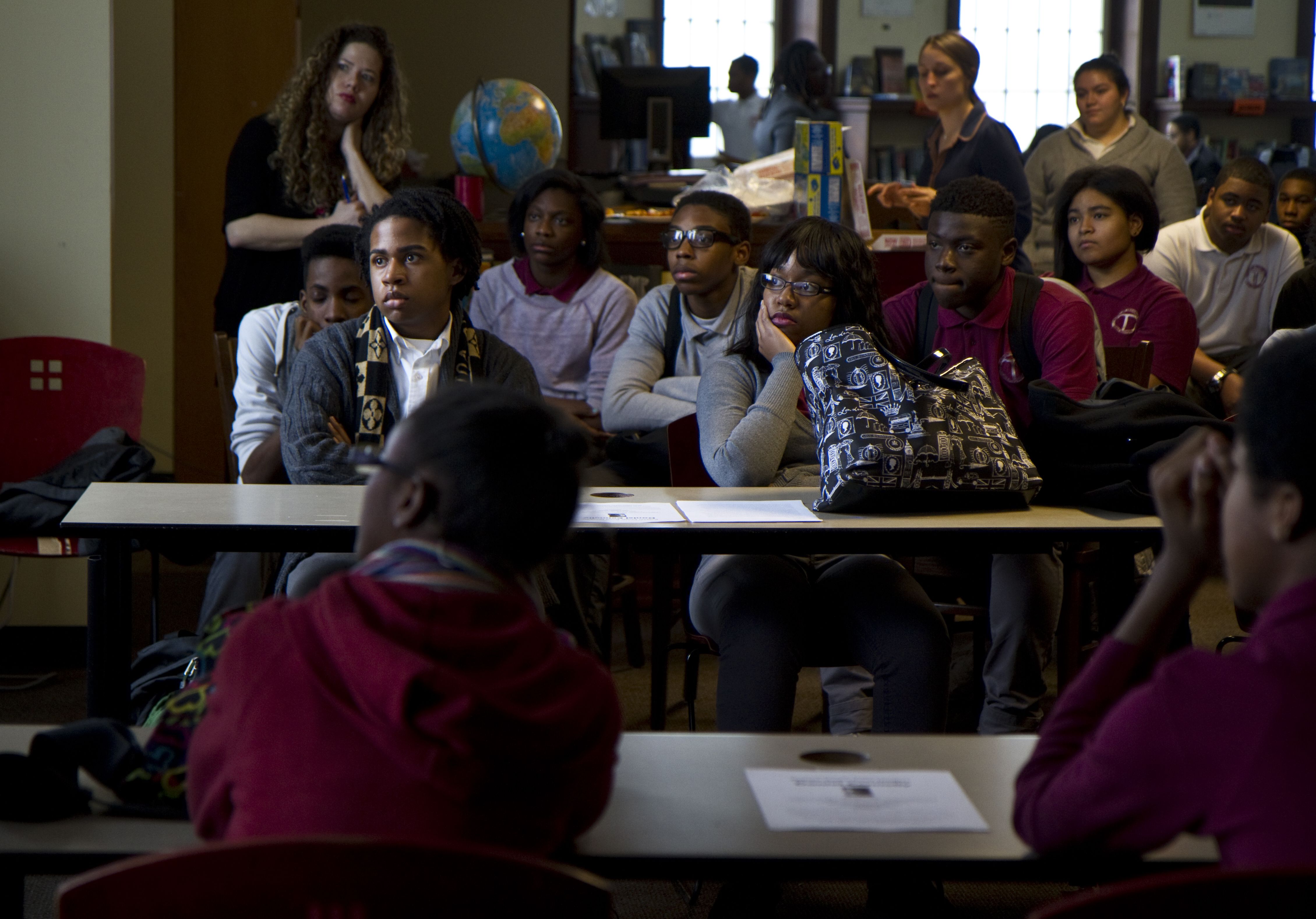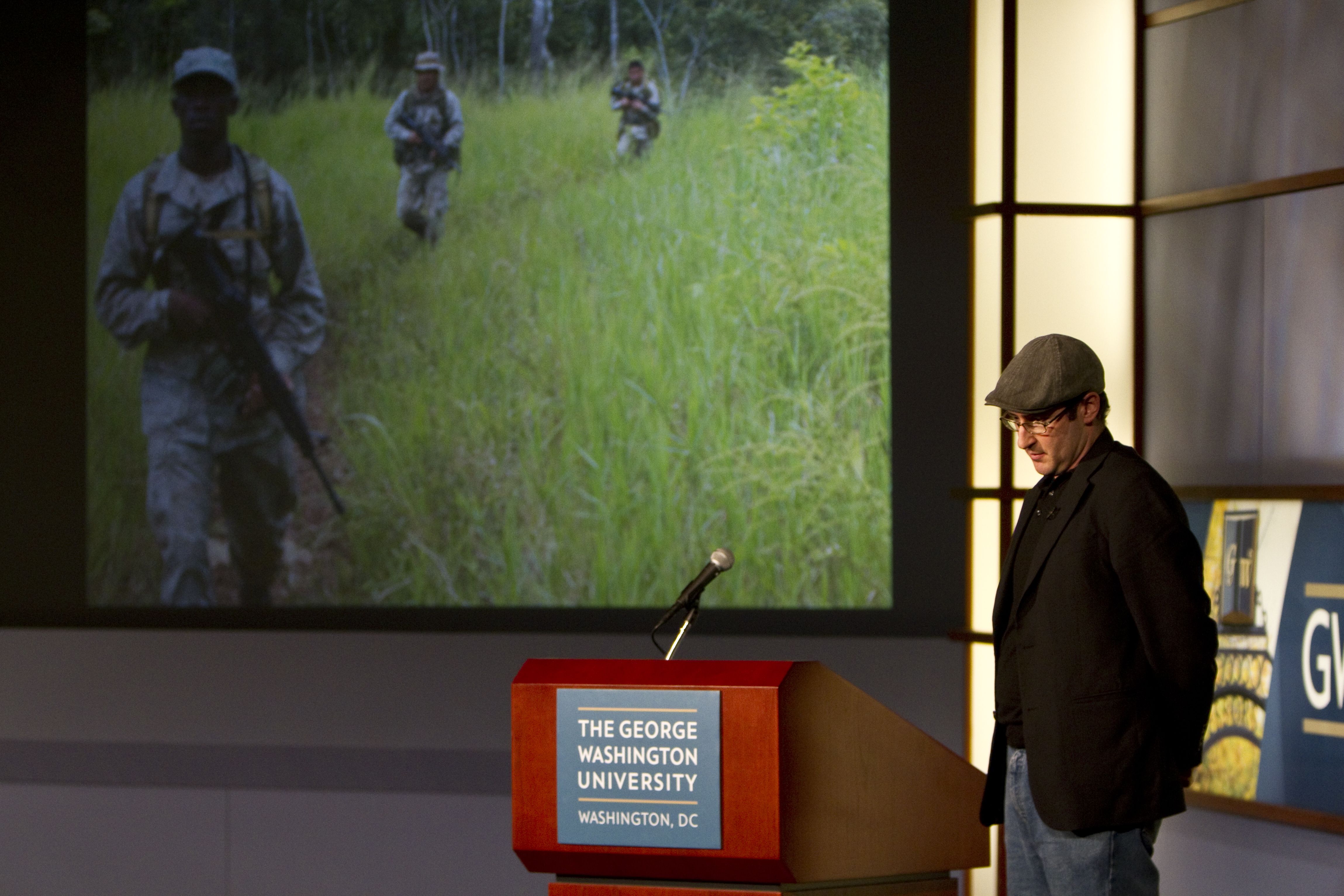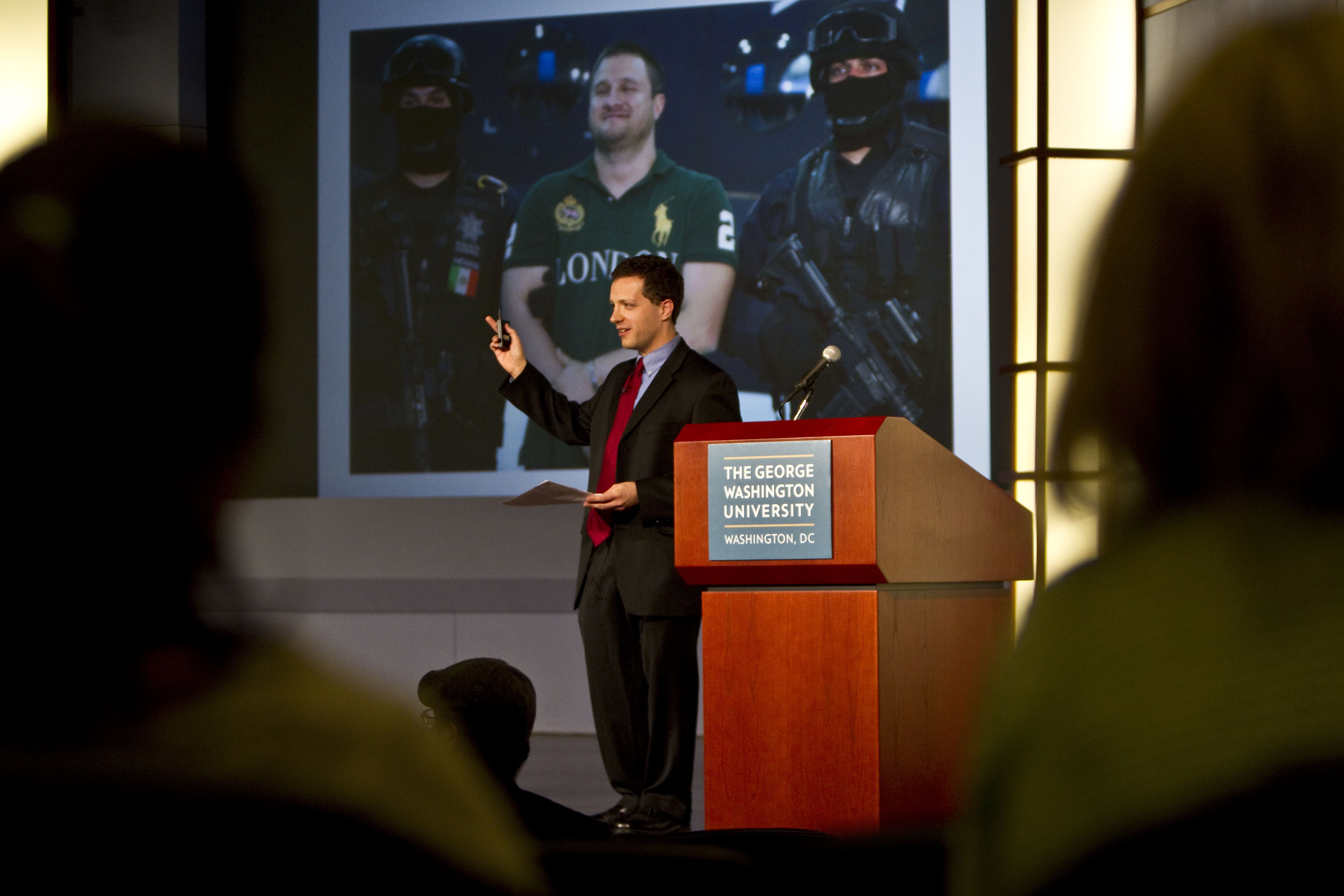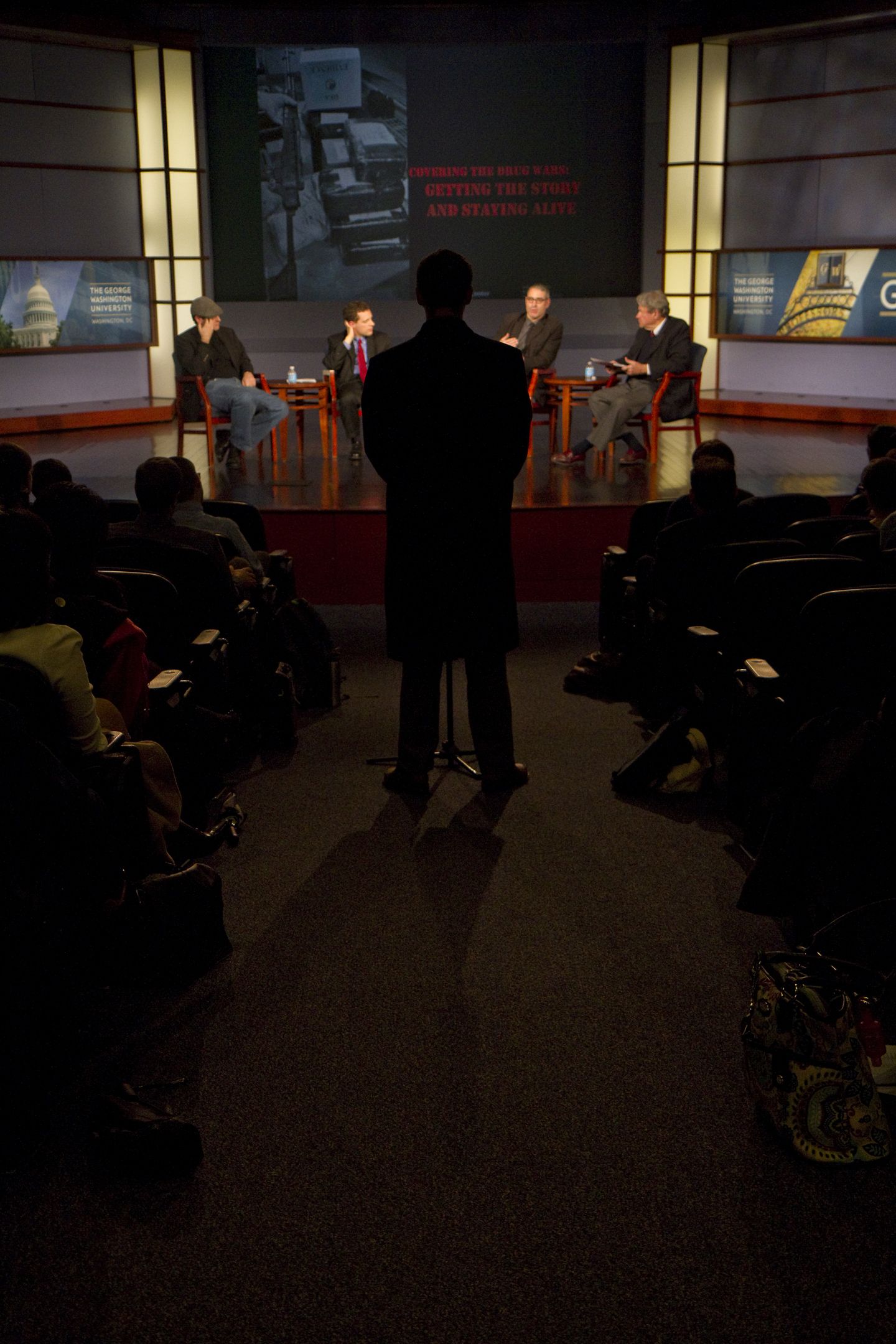Pulitzer Center grantees Nick Miroff, Daniel Connolly and Louie Palu came to Washington, DC, in February to share their reporting from Mexico and Central America on immigration, drug trafficking and border issues. In all, they reached an estimated 450 people, including more than 300 middle and high school students. The visits with middle and high schools were organized with assistance from Sally Schwartz of the DC Center for Global Education and Leadership.
Read on for highlights from the education tour.
Reaching Middle and High School Students
In two days, Miroff and Connolly spoke at five schools throughout the district.
At Brightwood Education Campus, Connolly spoke with two groups of middle school students. He covered a wide range of topics, from his current work with immigrant students in a Memphis public school to his past Pulitzer Center project on drug trafficking in Mexico. He touched on the importance of learning from personal failures and fielded thoughtful questions from students throughout both sessions.
The students also tried out interview techniques with an activity exploring the difference between open-ended and close-ended questions, learning that open-ended questions can deliver a more holistic and descriptive answer. Educator Monica Shah of Brightwood Education Campus designed a worksheet to introduce Connolly’s reporting to students in advance of his visit. For reference, her worksheet is attached at the bottom of this page.
Miroff talked with more than 100 students at Wilson High School in a cross-disciplinary event with Spanish and social studies classes, where he shared his reporting on drug trafficking in Central America and his path to becoming a professional journalist. Students asked Miroff questions about vigilante justice in Mexico, the pros and cons of legalization of marijuana in the United States, and the prevalence of drug addiction in Mexico.
At Luke Moore Academy in Northeast Washington, Miroff spoke with Danielia Donegal’s Spanish class about his experiences in many Latin American countries, the logistics of trafficking drugs from Mexico to the United States, and the value of learning a second language.
In a dynamic presentation at McKinley Technology High School, Connolly discussed the advantages and disadvantages of a career in journalism with ninth graders, sharing his salary and report card from his time at a major news outlet.
"Getting the Story and Staying Alive" at The George Washington University
Connolly, Miroff and fellow Pulitzer Center grantee Louie Palu participated in a panel titled "Covering the Drug Wars: Getting the Story and Staying Alive" at The George Washington University School of Media and Public Affairs (SMPA), a Campus Consortium partner. All three fielded questions from moderator Steve Roberts regarding their work as reporters in the dangerous terrain of Mexico's drug wars, with Palu photographing the border, Connolly tracing a deadly connection to Memphis and Miroff exploring smuggling routes through Central America. The panel focused on the people behind the reporting: the journalists' "fixers," the threats to all their lives and how they kept themselves safe.
The reporters openly discussed the mental health of those in their field, an issue rarely examined. They spoke of switching cell phones for safety reasons; Palu said he carries his camera equipment in an old pillowcase. The panelists also pointed out that buyers in the United States contribute heavily to the violence, with no signs of slowing their consumption. "There's no way you can buy drugs on the black market and not run the risk of giving money to killers," Connolly said.
The next day, at a research methodology seminar at SMPA, Connolly led an interactive session in which students applied their research skills to an international reporting assignment. This visit was coordinated as a part of the Pulitzer Center's Campus Consortium partnership with The George Washington University. Students planned a mock reporting trip to Mexico to cover drug trafficker Craig Petties based on a real assignment completed by Connolly in 2010. They strategized how to find a trusted fixer in Mexico, research public records, and arrange prison interviews. Connolly explained his research and writing process from start to finish, highlighting what worked and what didn’t.
Connolly shared personal anecdotes about his experience on the project and spoke of the emotional toll exacted on reporters covering the drug war. He also talked about the culture of drug trafficking in Mexico by sharing photographs of a chapel devoted to Santa Muerte in Querétaro state and even singing the beginning lines of a famous narcocorrido, a style of music from northern Mexico associated with the drug trade.
Explore our Resources
For a wealth of reporting on related topics, see Pulitzer Center-sponsored projects on social, economic and environmental issues in Mexico.
We’re eager to grow our community of globally minded educators in DC (and everywhere)! If you’re interested in future school visit opportunities with our journalists, email us at [email protected].
While you're at it, sign up for our education newsletter and check out our reporting-based curricular materials!
Editor's note: A previous version of this story misstated the date of publication of the Craig Petties story.
| Attachment | Size |
|---|---|
| 102.38 KB |













